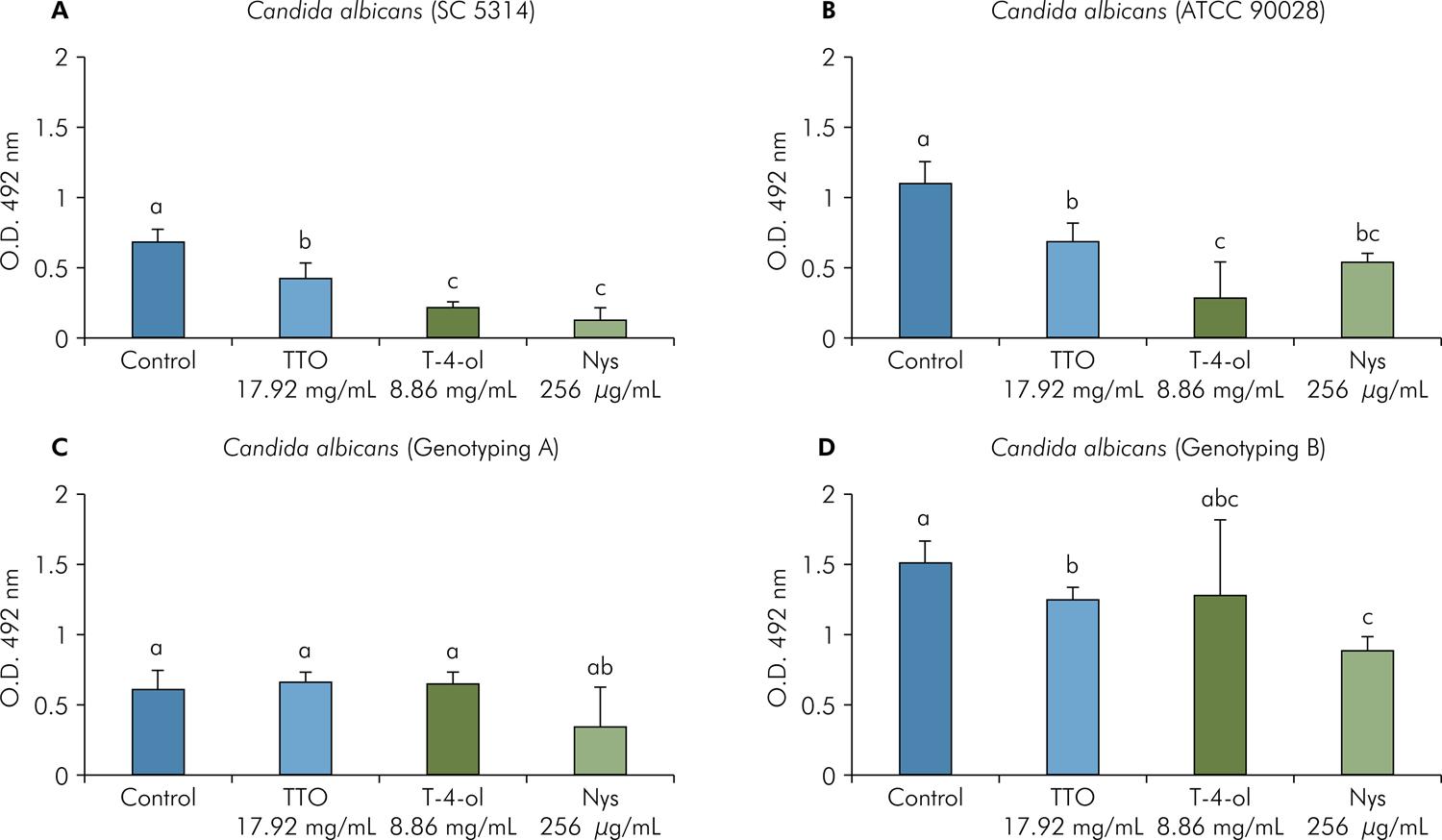Abstract
Candida infection is an important cause of morbidity and mortality in immunocompromised patients. The increase in its incidence has been associated with resistance to antimicrobial therapy and biofilm formation. The aim of this study was to evaluate the efficacy of tea tree oil (TTO) and its main component – terpinen-4-ol – against resistant Candida albicans strains (genotypes A and B) identified by molecular typing and against C. albicans ATCC 90028 and SC 5314 reference strains in planktonic and biofilm cultures. The minimum inhibitory concentration, minimum fungicidal concentration, and rate of biofilm development were used to evaluate antifungal activity. Results were obtained from analysis of the biofilm using the cell proliferation assay 2,3-Bis-(2-methoxy-4-nitro-5-sulfophenyl)-2H-tetrazolium-5-carboxanilide (XTT) and confocal laser scanning microscopy (CLSM). Terpinen-4-ol and TTO inhibited C. albicans growth. CLSM confirmed that 17.92 mg/mL of TTO and 8.86 mg/mL of terpinen-4-ol applied for 60 s (rinse simulation) interfered with biofilm formation. Hence, this in vitro study revealed that natural substances such as TTO and terpinen-4-ol present promising results for the treatment of oral candidiasis.
Biofilms; Candida albicans; Mycoses; Phytotherapy



